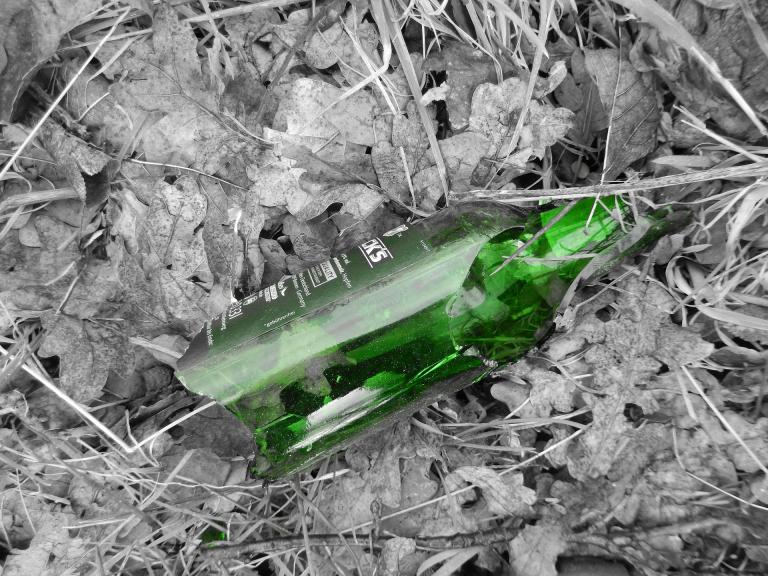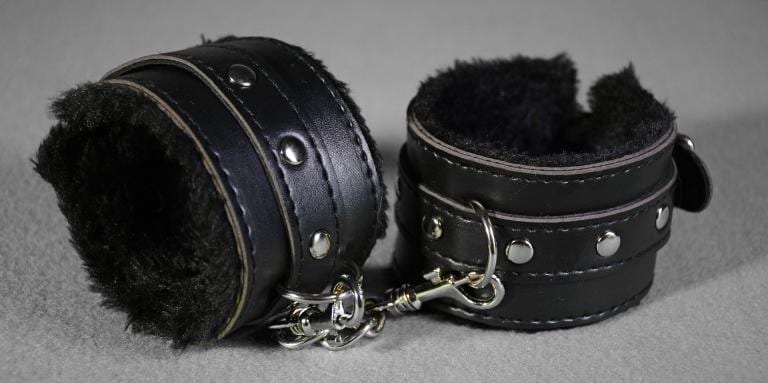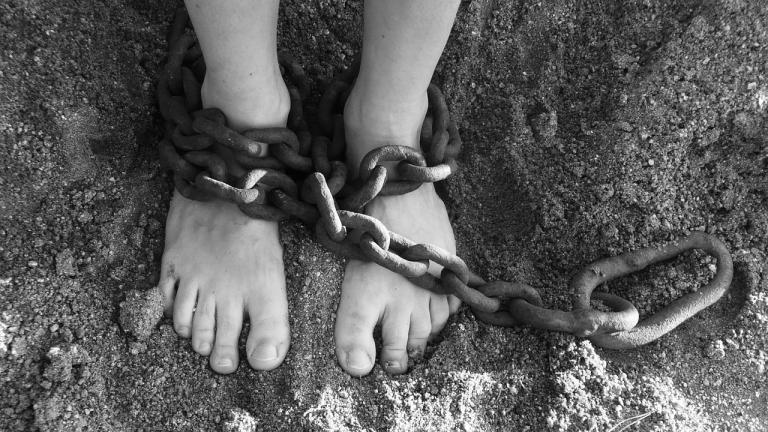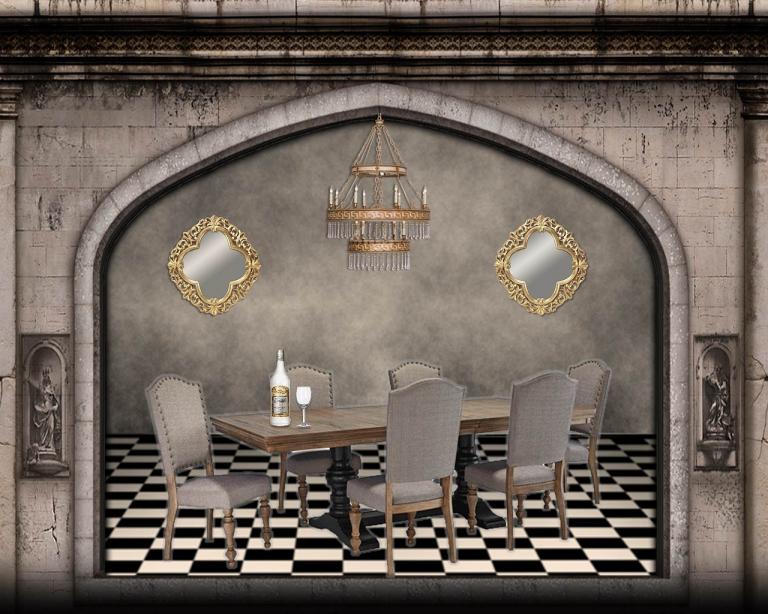One of the commenters on my previous post suggested that I should make my next blog post one where I acknowledge my own culpability and look at how I might have harmed my marriage. She recommended Retrouvaille and suggested that my friendship with another man might have caused my husband to numb himself with alcohol.
Ahem.
So, I want to talk about this, because there is a sense in which it represents a typical Catholic approach to marital conflict — an approach which can actually be deeply harmful to spouses of abusers and addicts. It also presents assumptions which I had to very slowly overcome in my own psychology — a laborious process, and one for which I am largely indebted to Alanon.
Simcha Fischer, in her excellent article in America, (which you should read) points out that Retrouvaille’s approach can actually be counterproductive for women in abusive relationships.
An Insatiable Threat
Like marriage counseling, Retrouvaille focuses on trying to heal the relationship and save the marriage. Because the ministry is specifically Catholic, this emphasis is actually greater than it is in secular marriage counseling — but even ordinary marriage counselng is often disrecommended by advocates for abuse victims. Fortunately in my case my counselor was able to see that the relationship was toxic, and he tried to gently guide us towards a choice to end it amicably rather than trying to push for a reconciliation.
Obviously Catholic counselors and Retrouvaille facilitators are going to vary in their approach to situations like this. I know of women who were advised by priests and spiritual directors to seek annulments, whose instincts to get out were confirmed and supported by the Church. However, when a program is focused on mutual culpability this is often counterproductive in abusive or alcoholic marriages.
The problem is that normally in serious marital conflict both parties are focused on a narrative where they are the good guy and the other person is responsible for all of the problems. In reality, both parties have legitimate grievances but neither is capable of listening to, or addressing, the other side’s problems because they feel that they are not being heard. The solution is to let down your guard and listen to the other person, to honour their perspective and work towards a healthy compromise.
In abusive situations, however, letting down your guard can be dangerous, and listening to the other person often becomes an exercise in self-erasure because you are not listened to in turn. Your sympathy for the other person’s point of view starts to trump your own sense of self-preservation, and the more that you listen the more you are drawn into your abuser’s world — a world that is deeply at odds with reality, and with your own best interests.
Such a marriage is, to borrow John Paul II’s turn of phrase, “threatened by insatiability.” One party wants to, in effect, consume the other — and the other party desires, in some sense, to be consumed. The curse of Genesis is fully manifest: “Your desire shall be for your husband and he shall lord it over you.” That is, the desire to do and be good becomes warped because the good is understood only in relation to the all-consuming needs of one other person, your spouse. (Note that this dynamic can work either way, men can be the victims of abuse at the hands of their wives, but the disorder described in Genesis is the more typical pattern.)
What this means in practical terms is that instead of having two parties who both deny responsibility, you have one party who shifts the blame away from himself and another who assumes blame for things that are not their fault. When you invoke “blame on both sides” what happens is that the abuser very quickly turns the conversation towards the faults, real or perceived, of their partner and their spouse responds by internalizing criticisms which are often unjust. The victim attempts to fix the relationship by constantly bending to unreasonable expectations or demands, and when this fails to fix things the abuser finds new avenues of blame.
Anything But the Bottle
When addiction is involved, the addict is continually looking for a scapegoat to blame for the problems caused by substance abuse. The last thing that an alcoholic wants to admit is that the chaos in their life and their relationships is caused by drinking. After all, drinking is the solution to their experience of inner turmoil. So something else must be to blame, and since their spouse is close at hand very often it is she, or he, who bears this burden.
In the case of my relationship, there were literally dozens of things that I did that supposedly made it necessary for him to “numb himself with alcohol.” My inability to simultaneously meet all of his emotional needs, provide for our family with writing income, do almost all of the childcare (and we were, at the time, homeschooling a sizable brood of children), keep a clean house, maintain our property, and be sexually available as often as he wanted “caused” him to drink. It never occurred to him to blame his drinking on my close friendship with another man — he was always included in that friendship, and even he could see that it was nonsensical to be upset about the fact that every two or three weeks I spent an hour or two talking about Jungian psychology, postmodern art and the relationship between Nietzche and Foucault, over the phone, with a celibate guy.
Over the years that we were married, I became increasingly involved in the project of trying to take responsibility for my part in making my husband’s life so unbearable that he had no choice but to kill the pain with alcohol. I believed and internalized many of the things that he told me, and I became completely emotionally and spiritually depleted by the task of trying to manage his alcoholism. The idea that if I were sufficiently virtuous and patient eventually this would reduce his stress level and inspire him to greater moral accomplishment was a big part of my management strategy.
Eventually it paid dividends of a sort. We were having one of our endless arguments about his drinking, but in this case he was relatively sober. He said something that implied that my actions were making him drink and I broke down crying. I laid out for him all of the different excuses that he had given for his drinking over the years, all of the different faults in me that supposedly caused him to drink, and I demonstrated that I had repeatedly fixed the things he asked me to fix… and that this had not reduced his booze consumption.
He contemplated this for a bit and said, “It’s not your fault. You’re an angel.” And then he went on drinking just as before, only now instead of blaming me he blamed the kids.
It was after this that I finally realized that his excuses were just that: excuses. He wasn’t drinking because I was sexually frigid, or because the house wasn’t clean enough, or because I was bad at reading my fertility signs, or because I wasn’t able to find enough free babysitting for us to go on a week-long vacation. He was drinking because that’s what alcoholics do.
Step By Step
Now, that’s not to say that my choices were impeccable. I do bear culpability. I should have noticed the red flags before we got married, should have listened to my mother when she expressed concern, should have joined Alanon years earlier when my spiritual director suggested it, should have been honest with social workers about his drinking and his abusive behaviour. I should have set boundaries long ago and I should have stuck to them.
I didn’t because I thought that I was doing the Christian thing: focusing on my own faults, setting a good moral example, forgiving seventy times seven times.
When you’re in a relationship with an addict or an abuser, yes, there is fault on both sides — but the fault on the victim’s side isn’t something that can be confronted as the first step towards reconciliation. This is because reconciliation, in such cases, usually doesn’t involve the restoration of the marriage.
The abuser must become reconciled with his own interior turmoil, must own it, take responsibility for it, acknowledge that the means he’s been using to address it are actually contributing to the problem, and then he has to make amends by rebuilding his life without demanding that his spouse rebuild it for him. The victim needs to become reconciled to their own powerlessness, to the reality that “I did not cause it. I cannot change it. I cannot control it.”
Traditional approaches to couples therapy, including Retrouvaille, often begin by telling both parties to look at their own faults. A victim of abuse, however, has usually spent far too long looking at, thinking about, and trying to fix her own “faults” — often faults that only exist in the mind of her abuser.
The first step to healing, then, is not to focus on your own faults but to finally, deeply realize that you are powerless to save the other person. That your virtues are never going to be sufficient to pull them out of their sin, that you can’t fix through the shining example of your own moral effort. That marriage is not a relationship where one person lugs the other person around like a Cross.
At the point where you are admitting powerlessness, you can’t be thinking about how you are to blame. (Spoilers: that’s step 4.) You’ve learned to process responsibility in an unhealthy way, a way that erases boundaries and leaves you feeling guilty for things that you can’t control. If you think about your own culpability, you inevitably descend back into the codependent whirlpool, believing that this time if you take responsibility in the right way, by not enabling, you’ll finally be able to cure the addiction.
You have to work through the first steps, admitting that you’re not able to take responsibility for the other person’s drinking, realizing that you have to “let go and let God,” before you can even begin to see your own faults as they actually are. And you can’t do this in partnership with your spouse, because they are always looking at you, and your imperfections, through the warped lens of a bottle.
Image by 901263 on Pixabay












